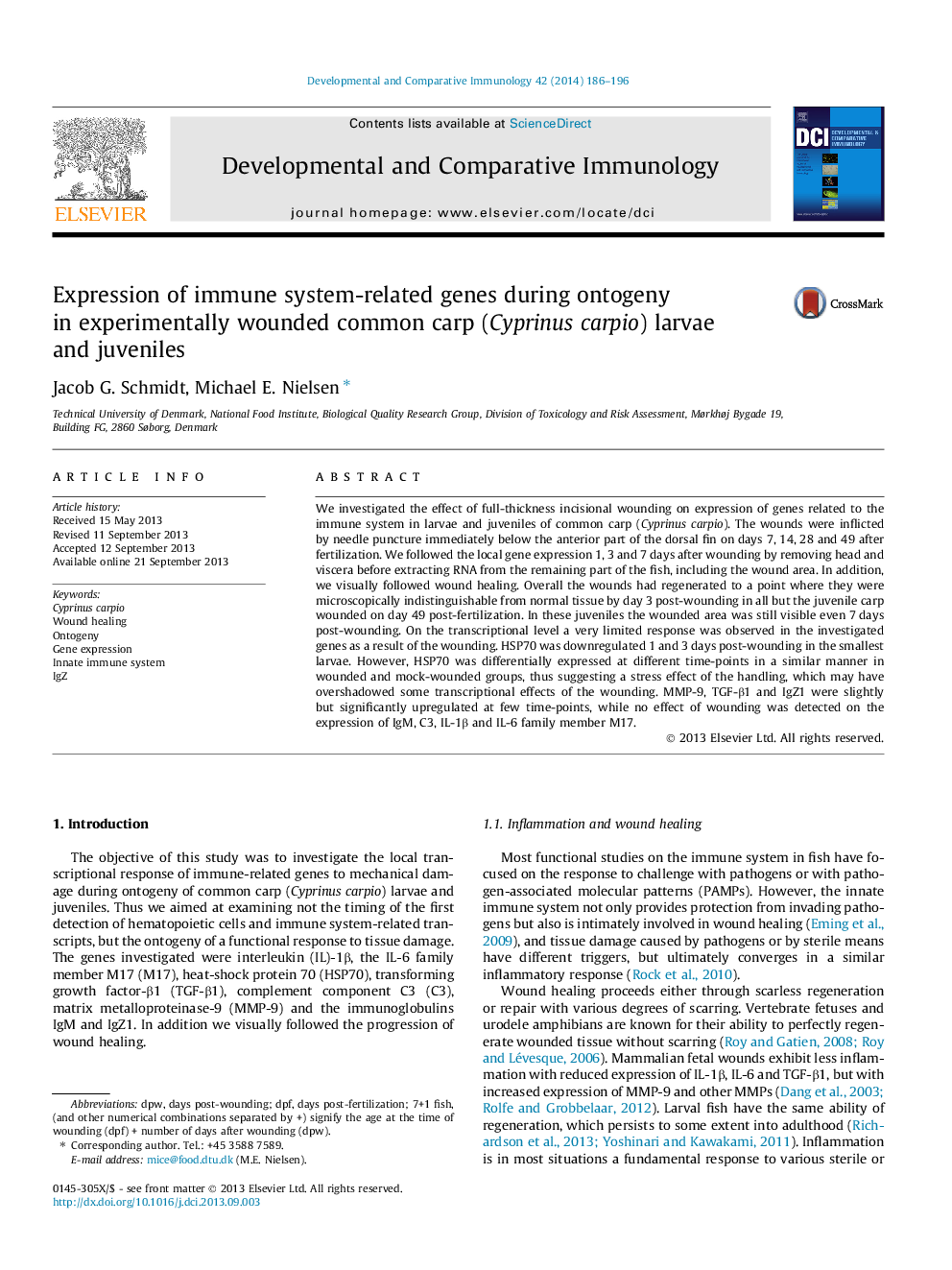| Article ID | Journal | Published Year | Pages | File Type |
|---|---|---|---|---|
| 10971461 | Developmental & Comparative Immunology | 2014 | 11 Pages |
Abstract
We investigated the effect of full-thickness incisional wounding on expression of genes related to the immune system in larvae and juveniles of common carp (Cyprinus carpio). The wounds were inflicted by needle puncture immediately below the anterior part of the dorsal fin on days 7, 14, 28 and 49 after fertilization. We followed the local gene expression 1, 3 and 7 days after wounding by removing head and viscera before extracting RNA from the remaining part of the fish, including the wound area. In addition, we visually followed wound healing. Overall the wounds had regenerated to a point where they were microscopically indistinguishable from normal tissue by day 3 post-wounding in all but the juvenile carp wounded on day 49 post-fertilization. In these juveniles the wounded area was still visible even 7 days post-wounding. On the transcriptional level a very limited response was observed in the investigated genes as a result of the wounding. HSP70 was downregulated 1 and 3 days post-wounding in the smallest larvae. However, HSP70 was differentially expressed at different time-points in a similar manner in wounded and mock-wounded groups, thus suggesting a stress effect of the handling, which may have overshadowed some transcriptional effects of the wounding. MMP-9, TGF-β1 and IgZ1 were slightly but significantly upregulated at few time-points, while no effect of wounding was detected on the expression of IgM, C3, IL-1β and IL-6 family member M17.
Keywords
Related Topics
Life Sciences
Biochemistry, Genetics and Molecular Biology
Developmental Biology
Authors
Jacob G. Schmidt, Michael E. Nielsen,
